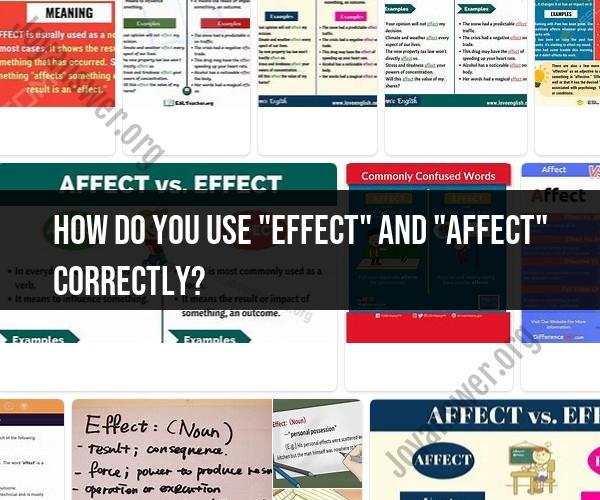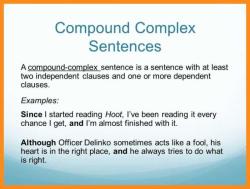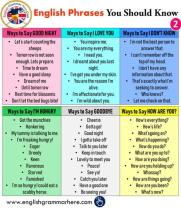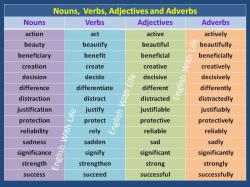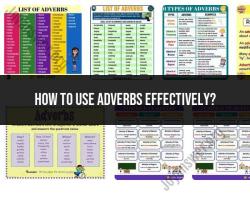How do you use "effect" and "affect" correctly?
"Effect" and "affect" are two words that are often confused because they are related in meaning but have distinct roles in a sentence. Here's how to use them correctly:
1. "Effect" (Noun):
- "Effect" is a noun that refers to the result or outcome of an action, event, or influence.
- Example: The effect of the new policy was an increase in employee morale.
2. "Affect" (Verb):
- "Affect" is a verb that means to influence, change, or have an impact on something.
- Example: The new policy will affect employee morale positively.
To use them correctly:
- If you want to describe the result or outcome of something, use "effect" as a noun.
- If you want to describe the action of influencing or changing something, use "affect" as a verb.
Remember these tips:
- Remember that "R" comes before "E" in the alphabet. "Result" comes before "event." So, "effect" is often associated with a result or outcome.
- Affect comes before "E" in the alphabet. "Action" comes before "effect." So, "affect" is often associated with an action or influence.
Examples:
- The heavy rain had a negative effect on the outdoor event. (Here, "effect" is a noun referring to the result.)
- The cheerful music will positively affect the mood of the guests. (Here, "affect" is a verb describing the action of influencing.)
Keep in mind that there are some less common uses of these words, such as "affect" as a noun (referring to someone's emotional state) and "effect" as a verb (meaning to bring about or accomplish something). However, in everyday writing and communication, the uses described above are the most common and should cover the majority of cases.
